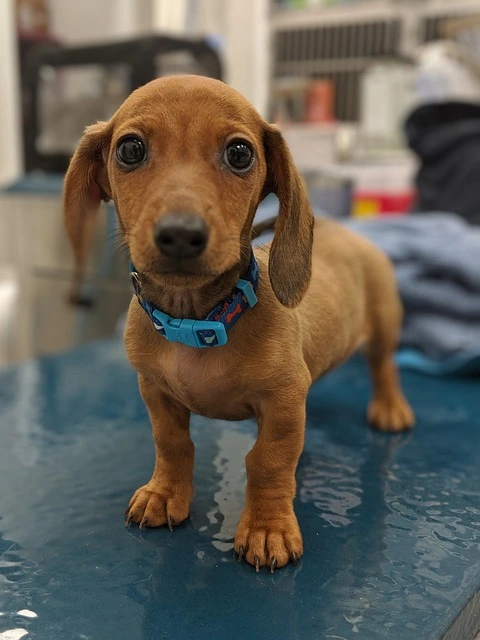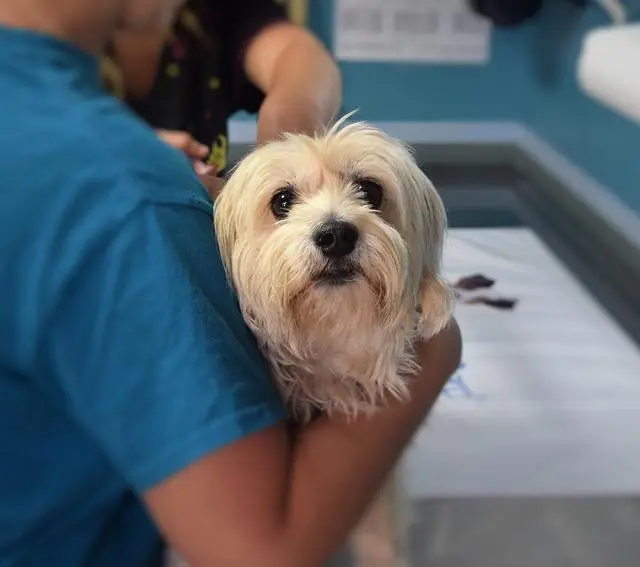Puppy vaccinations are critical for your furry friend’s safety. We will provide you in this article with everything you need to know about the many vaccines your puppy will need, as well as the best time to administer them.
- Introduction
- General Immunisation Plan for most puppies
- The benefits of vaccinating your puppy
- Different types of puppy vaccinations
- How often should your puppy be vaccinated?
- What to do if your puppy misses a vaccination
- Is there any related side effects to puppy vaccinations?
- How to find a good veterinarian for your puppy?
- Conclusion
General Immunisation Plan for Most Puppies
A puppy immunisation plan is required to protect your cherished pet from a wide range of ailments. Below is a list of general puppy vaccination schedules.
- The first puppy immunisation should be administered at the age between six to eight weeks. Distemper and parvovirus are both protected by this vaccine. Optional Vaccination for Bordetella bronchiseptica (kennel cough) can be also given at this stage.
- The vaccine which protects against rabies and DHPP should be given in between sixteen to eighteen weeks.
- Coronavirus Vaccine for dogs should be administered when the puppy is at least one year old.
The Benefits of Vaccinating Your Puppy
Vaccines for dogs help prevent them from a number of diseases and provide them with lifelong protection from certain ailments. Puppies are at a higher risk of developing significant health problems, and immunizations can help keep them healthy and disease-free.
Every dog’s vaccination schedule is different, but it’s critical to keep your puppy on a regular vaccination schedule to protect them from the most common threats. Always consult your vet to get the best advice for your pup’s vaccine requirements.
Different Types of Puppy Vaccinations
There are three rounds to the vaccine schedule: the initial round, the repetition round, and the booster round.
The first series of vaccinations protects your puppy from infections he has never been exposed to before. The Repeat round protects your pup from infections to which he or she has previously been exposed but may have gained immunity. The booster round boosts your dog’s protection against such diseases in the future.
How Often Should Your Puppy Be Vaccinated?
It should be noted that not all puppies are the same, as is their requirement to be vaccinated. Vaccinating a puppy is dependent on which country or state you live in, and other dogs do not need to follow what the vaccine guidelines are.
It is still best to consult your veterinarian to better schedule the vaccinations your puppy needs.
According to the American Kennel Club, the following are generally recognised vaccination guidelines for your puppy.
6 to 8 Weeks Old Recommended Vaccination
Distemper:
A severe and infectious sickness that targets the respiratory system and spreads through the air. It results in eye and nasal discharges, fever, coughing, vomiting, diarrhoea, convulsions, twitching, paralysis, and, in some cases, death.
Parvovirus:
A highly infectious virus that affects all dogs, but pups under the age of four months are the most vulnerable. The parvovirus targets the gastrointestinal tract, causing nausea, vomiting, fever, and, in some cases, severe, bloody diarrhoea.
10 to 12 Weeks Old Recommended Vaccination
DHPP (vaccines for distemper, adenovirus [hepatitis]:
It is a contagious viral illness that affects the respiratory, nervous, and gastrointestinal systems of dogs. Hives, vomiting and diarrhoea, swelling of the face, itching, and muscular weakness are frequent symptoms.
Parainfluenza:
Canine influenza virus, often known as greyhound sickness, is an infectious virus that affects dogs. The virus parainfluenza is one of the viruses that can cause kennel cough. Low-grade fever, coughing, energy loss, nasal discharge, and loss of appetite are some of the symptoms that can readily pass from dog to dog through the air.
Parvovirus:
A highly infectious virus that affects the digestive tracts of dogs and is transmitted by direct dog-to-dog contact and infected faeces. Some of the symptoms include loss of appetite, sleepiness, stomach discomfort and bloating, vomiting, and fever.
16 to 18 Weeks Old Recommended Vaccination
DHPP: Refer to the above details.
Rabies:
It is a viral infection that spreads through the bite and infects the central nervous system. Someone who got rabies may experience headaches, anxiety, hallucinations, excessive drooling, fear of water, paralysis, and death.
12 to 16 Months Old Recommended Vaccination
DHPP, Rabies
Every 1 to 2 Years Recommended Vaccination
DHPP
Every 1 to 3 Years Recommended Vaccination
Rabies (as required by law)
Optional Vaccinations
Below are optional vaccination schedules that your veterinarian can recommend. This can be included in the week’s schedule listed above.
First Round: Bordetella.
Second Round: Influenza, Leptospirosis, Bordetella, and Lyme disease.
Third Round: Coronavirus (Canine), Influenza, Leptospirosis, Bordetella, and Lyme disease.
Ask your veterinarian when your dog can be vaccinated and if required by law in your area.
The guidelines aren’t meant to be a one-size-fits-all vaccination schedule for all pets. Instead, the Guidelines provide a set of suggestions to help individuals make informed immunisation decisions for their particular patients.
Vaccination frequency is determined by your puppy’s age, health, lifestyle, and environment.
Prevention And Treatment Guidelines
At certain times, puppies must be vaccinated against common diseases. Based on the American Animal Hospital Association’s Guidelines for the Prevention and Treatment of Canine Infectious Diseases, the immunisation regimen for puppies is as follows. If you want to get a copy of this guideline, you can download a PDF file from here.
What To Do If Your Puppy Misses a Vaccination?
Puppy vaccinations schedule differ from state to state, so make sure you know what is required in your area. If you are unable to get your puppy vaccinated due to a medical condition, you can follow the steps below:
- Talk to your veterinarian about what other precautions you should take to protect your puppy from disease.
- Give your puppy an oral vaccine dosage at least two weeks before the vaccine’s suggested administration period, as per the manufacturer’s instructions or vet advise.
- After administering this dose of vaccine to your puppy, have your veterinarian check for signs of immunity.
Puppies’ immune systems are still developing, so they require a series of immunizations to help protect them from disease. Pups should be vaccinated according to their age and weight at the time of vaccination.
Is There Any Related Side Effects To Puppy Vaccinations?
Puppy immunisation is an important step in protecting your puppy from infections that are both serious and dangerous. Many individuals are concerned about immunization’s safety, but there are no serious negative effects. To protect your pet’s safety, talk to your veterinarian about his medical history to determine if he’s healthy enough for a vaccination. Seeking the advice of a professional veterinarian is the most effective way to safeguard your pet’s safety.
It is typical for a puppy’s behaviour to vary slightly after immunisation. Like humans, pups can lose their sense of taste, causing them to eat fewer calories. You’ll notice that they don’t want to play and will lie down for almost the whole day. There will also be some swelling in the vaccinated area, making it painful to touch.
Some dogs may experience an increase in body temperature, which is normal when their bodies react to the vaccine’s foreign elements. Don’t worry; all you have to do now is watch your dog for two days, and his vigour will return when his body has fully recovered.
How To Find a Good Veterinarian For Your Puppy?
When you’re ready to start expanding your family, make sure you do your homework. There are a lot of outstanding veterinarians out there, but finding the right one for your dog can be difficult. Although there’s no assurance that the first veterinarian you visit will be the best fit for your dog, it’s a good place to start. There are a few things to keep in mind before consulting a veterinarian.
- Start by searching for pet forums and review websites on the internet.
- Enquire about certain veterinarians from friends and family who have dogs.
- Get in your car and travel around to other clinics.
- Make sure you understand what your puppy’s health requirements are.
- Make sure to ask around for someone who has expertise with pups.
- Look up the veterinarian’s website reviews to see if anyone has had a poor encounter with their services.
To Wrap Things Up!
Vaccinating your puppy is a crucial step in keeping him healthy. The various sorts of puppy immunizations assist your puppy’s body in developing immunity to certain diseases. Soreness and puffiness at the injection site are the most prevalent side effects of puppy vaccines.
It’s important to find a veterinarian you can trust to look after your puppy’s health. You might want to seek recommendations from other dog owners, or you can do a quick search online to find the veterinarians that are in your area. We hope you have found this information useful. Please consider sharing this article with your friends and family.
More From Our Blogs
8 Best Cane Corso Breeders In The US – You Can Trust
The Best Small Pets For Kids: A Comprehensive Guide
How to get your puppy’s age using a golden retriever growth chart?
Kennel cough vaccine: What you need to know?
Top 5 calming treats for dogs and their benefits
7 First-Time Dog Owner Mistakes You Don’t Want to Ignore
German Shepherd Price: How much do they cost?
150 Unique Doberman Names You’ll Love.
A Quick Guide To Cleaning Dog Poop From Your Carpet
How To Take Your Dog To The Beach And Keep It Safe.
How To Choose The Best Dog Bed For Your Pet: An Infographic
Dog Training Guide: A Beginner’s Guide To Train Your Dog.
Labradors: Know the Benefits and Downsides of Owning This Dog
5 Amazing Fun Facts about Dogs you should know
How To Clean Your Dog’s Ear At Home: A simple guide

